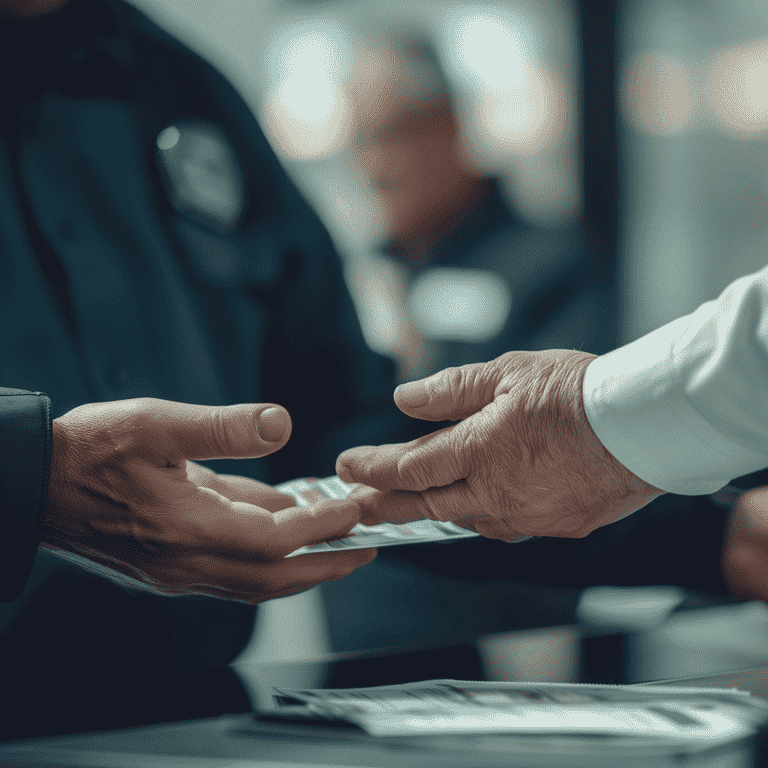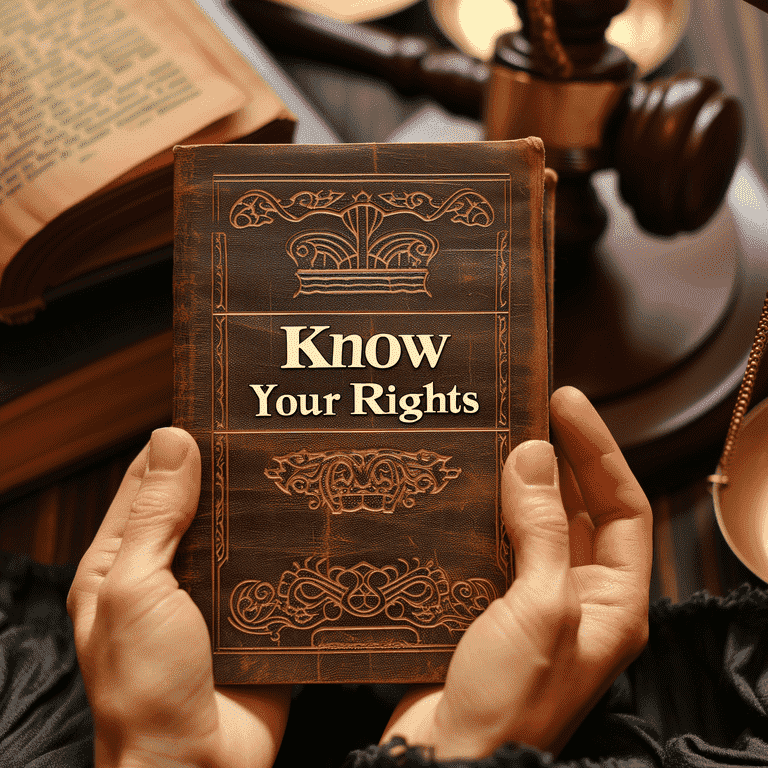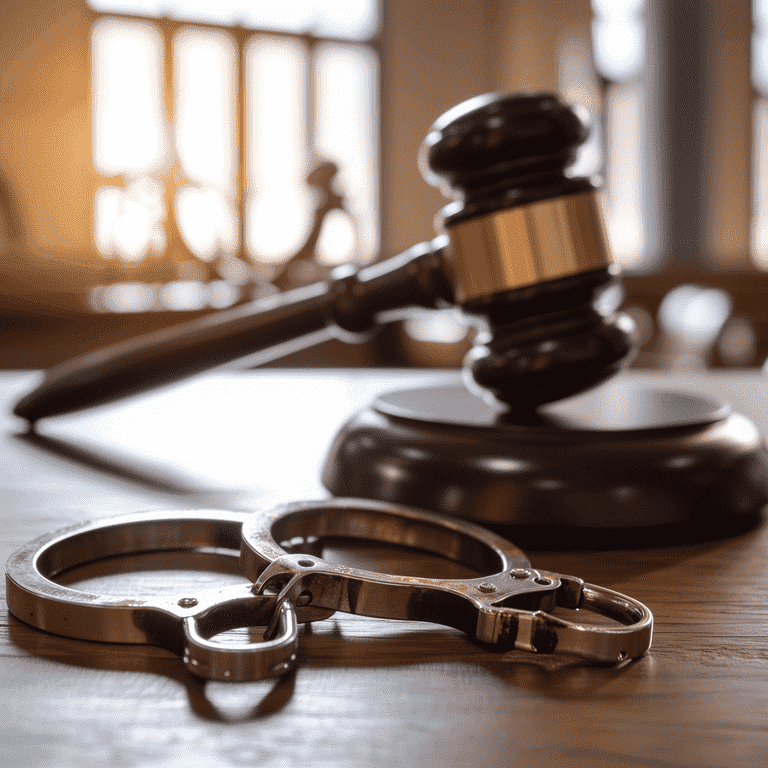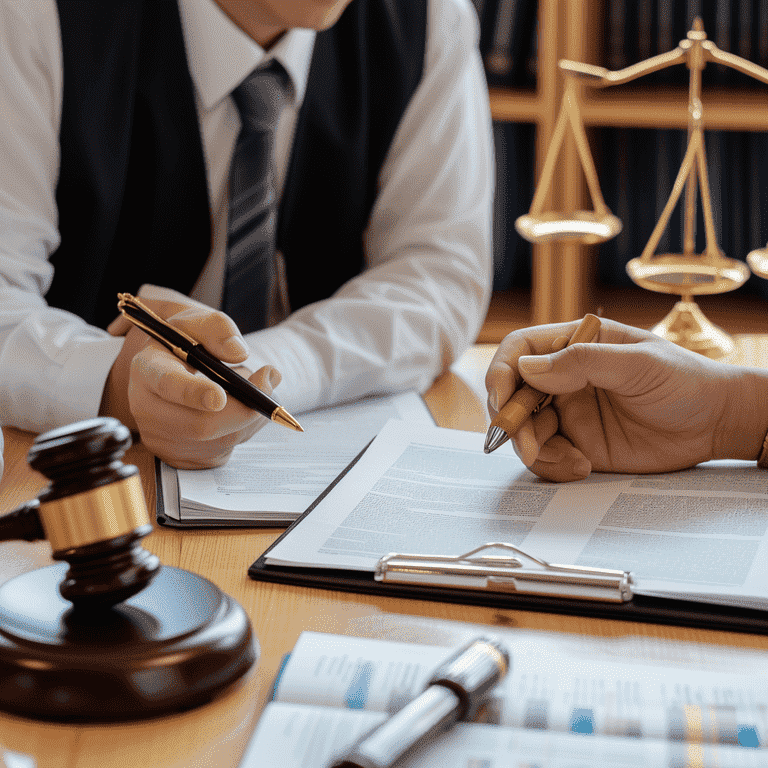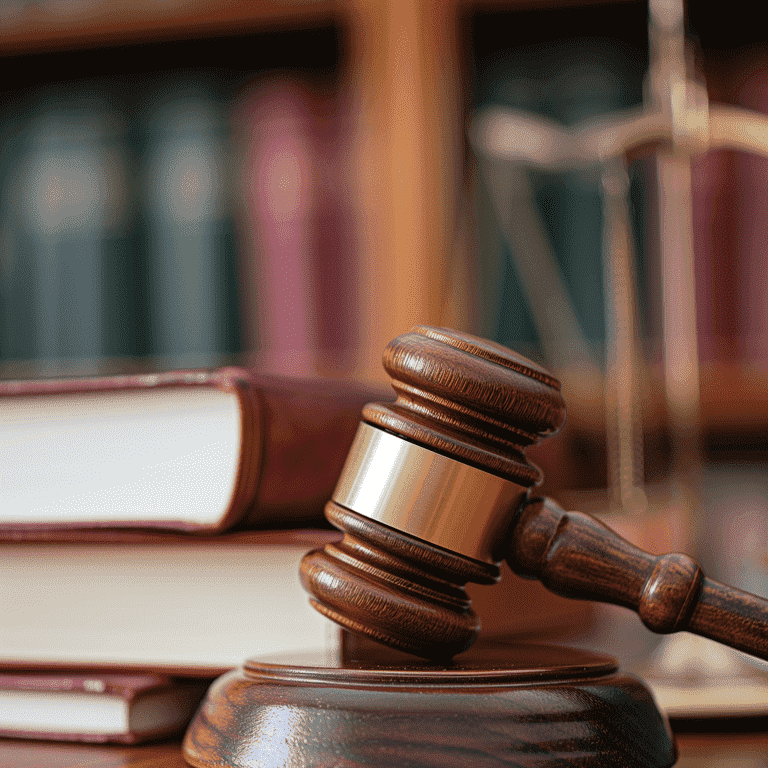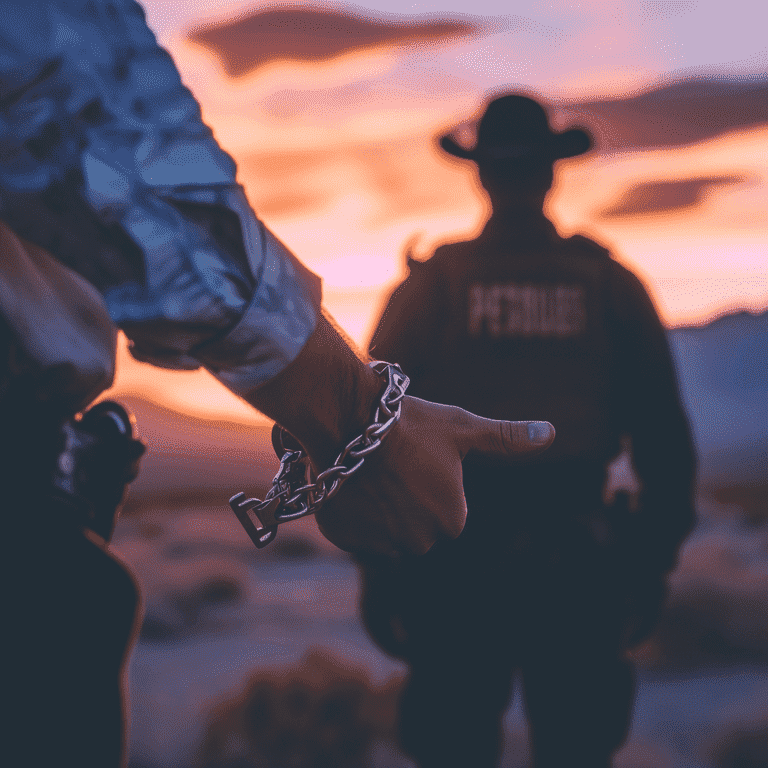Understanding the Arrest Process in Nevada
The Initial Arrest: What Constitutes a Legal Arrest in Nevada?
Getting arrested can be a stressful and confusing experience. It’s important to know what makes up a legal arrest in Nevada. An arrest is legal based on probable cause. This means there is a reasonable basis for believing a crime has been committed.
Note: Make sure to also check out our Arrested in Las Vegas post while you’re here

 During an arrest, the police must inform you of your fundamental rights. This is called Miranda rights. They include the right to remain silent and the right to an attorney.
During an arrest, the police must inform you of your fundamental rights. This is called Miranda rights. They include the right to remain silent and the right to an attorney.
Criteria for a Lawful Arrest
Probable Cause: Law enforcement must have credible evidence or reasonable suspicion.
Arrest Warrant: Except in urgent situations, a warrant issued by a judge is required.
Miranda Rights: These must be read to you during the arrest.
Rights During the Arrest Process Nevada
You have the right to remain silent. You don’t have to answer any questions, except for providing your identification.
Right to an Attorney: You can request a lawyer; if you cannot afford one, the state will provide one.
Protection Against Excessive Force: The police are prohibited from using unnecessary force.
The Role of Law Enforcement
Understanding the role of law enforcement in the arrest process Nevada can help you react appropriately.
Procedures Followed by Police
Identification: Officers should identify themselves.
Explanation of Charges: They must inform you of the reason for your arrest.
Use of Force: Only reasonable force can be used to make an arrest.
Handling Interactions with Police Officers
Stay Calm: Keep your emotions in check and avoid resisting arrest.
Be Polite: Cooperate, but remember your rights.
Ask for an Attorney: Request legal representation if you’re unsure about answering questions.
After the Arrest: The Booking Process
What Happens During Booking?
After your arrest, you’ll go through the booking process. This is where your details and the details of the alleged crime are recorded.
Fingerprinting and Photographing
Fingerprinting: Your fingerprints are taken for identification and record-keeping.
Mugshot: A photograph is taken for the police record.
Personal Information and Record Check
Personal Details: You’ll provide your name, address, and other essential information.
Background Check: The police will check if you have any previous criminal record.
Your Rights During Booking
Even during the booking process, your rights continue to play a vital role.
Right to Remain Silent
No Self-Incrimination: You don’t have to answer incriminating questions.
Right to an Attorney
Legal Representation: You can request a lawyer at any time.
The Importance of Knowing Your Rights
Miranda Rights Explained
Understanding your Miranda rights is crucial. These rights protect you from self-inc
incrimination and ensure fair treatment under the law.
Understanding Your Right to Remain Silent
Protection from self-incrimination: Anything you say can be used against you in court. It’s often best to remain silent until you have legal representation.
The Right to an Attorney
Legal Advice and Representation: An attorney can guide you through the legal process, advise you on your rights, and represent you in court.
How to Exercise Your Rights
Knowing your rights is one thing, but exercising them correctly is another. Here’s how:
Communicating with Law Enforcement
Clearly Invoke Your Rights: Say you wish to remain silent and want an attorney.
Do Not Waive Your Rights Unintentionally: Be cautious about what you say and do.
Requesting Legal Representation
Ask for a Lawyer: Insist on legal representation regardless of your financial situation.
Wait for Your Attorney: Don’t discuss your case with anyone until your attorney arrives.
Remember, understanding and asserting your rights is a vital part of navigating the arrest process in Nevada. Stay informed, stay calm, and seek legal assistance immediately.
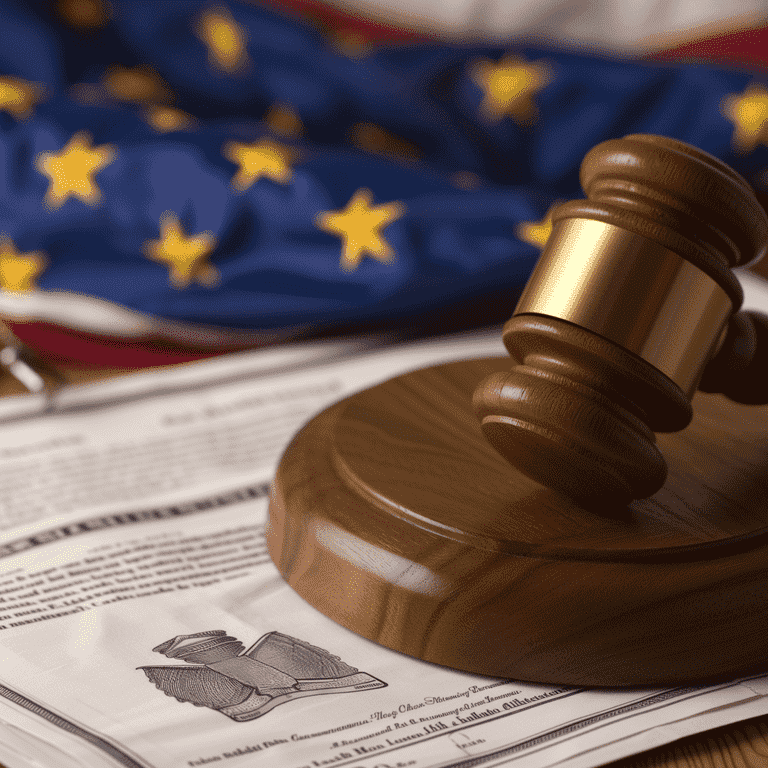
The Arraignment Process in Nevada Courts
What is an Arraignment?
Nevada arraignment is your first appearance in court after an arrest. It’s more than a formality; it’s where you hear the charges against you and enter a plea. This stage is crucial for setting the tone of your defense.
Understanding the Charges Against You
- Clarity on Accusations: The judge will read the charges, ensuring you understand what you’re accused of.
- Legal Implications: It’s essential to grasp the seriousness of these charges and their potential consequences.
The Role of the Judge
- Overseeing the Proceedings: The judge ensures the arraignment process is fair and legal.
- Addressing Bail and Legal Representation: They may set bail and confirm if you have an attorney.
Your Options at Arraignment
Your response to the charges is a pivotal moment in your legal journey.
Pleading Guilty, Not Guilty, or No Contest
- Guilty: Admitting to the charges, which often leads to sentencing.
- Not Guilty: Denying the charges, leading to a trial.
- No Contest: Neither admitting nor denying guilt, similar to a guilty plea in its consequences.
The Impact of Your Plea
- Sets the Course: Your plea influences the following steps, whether it’s negotiation, trial, or sentencing.
- Legal Advice is Key: Consult with your attorney before making a decision.
Bail and Pretrial Release
How Bail is Determined
Bail is the amount you pay to ensure you appear in court. It’s not a punishment but a guarantee.
Factors Influencing Bail Amount
- Severity of the Crime: More serious charges often mean higher bail.
- Flight Risk: If there’s a risk you won’t show up for court, bail can be higher.
- Criminal History: A clean record might lead to lower bail.
Bail Hearing Procedures
- Legal Representation: Your lawyer can argue for lower bail.
- Judge’s Discretion: The judge has the final say based on the law and circumstances.
Options for Bail and Release
There are several ways to meet bail requirements.
Cash Bail, Bond, and Property
- Cash Bail: Paying the total amount in cash.
- Bond: A bail bond company pays the bail for a fee.
- Property: Sometimes, you can use property as collateral instead of money.
Release on Own Recognizance
- No Financial Burden: The judge may release you without bail for minor crimes or based on your background.
- Promise to Appear: You must sign a document promising to attend all court dates.
Preparing for Your Defense
The Role of a Defense Attorney
Having the right defense attorney can significantly impact the outcome of your case.
How to Choose the Right Attorney
- Experience and Expertise: Look for an attorney with a track record in cases similar to yours.
- Communication Skills: Your attorney should be someone you can talk to openly and trust.
The Attorney-Client Relationship
- Confidentiality: Anything you discuss with your attorney is private.
- Advocacy: Your attorney’s job is to represent and defend your interests.
Building a Defense Strategy
A well-thought-out defense strategy is essential for a successful outcome.
Gathering Evidence
- Collecting Facts: Your attorney will gather evidence, interview witnesses, and prepare a defense.
- Investigative Work: Sometimes, private investigators are employed to find evidence that supports your case.
Pretrial Motions and Negotiations
- Motions: Your attorney may file motions to dismiss specific evidence or even the case.
- Plea Bargaining: Negotiating a plea deal can sometimes be a strategic choice to reduce charges or sentencing.
In navigating the complexities of the legal system, it’s crucial to stay informed and actively involved in your defense. Your attorney will be your guide and advocate, but your understanding and decisions will play a critical role in the journey ahead.
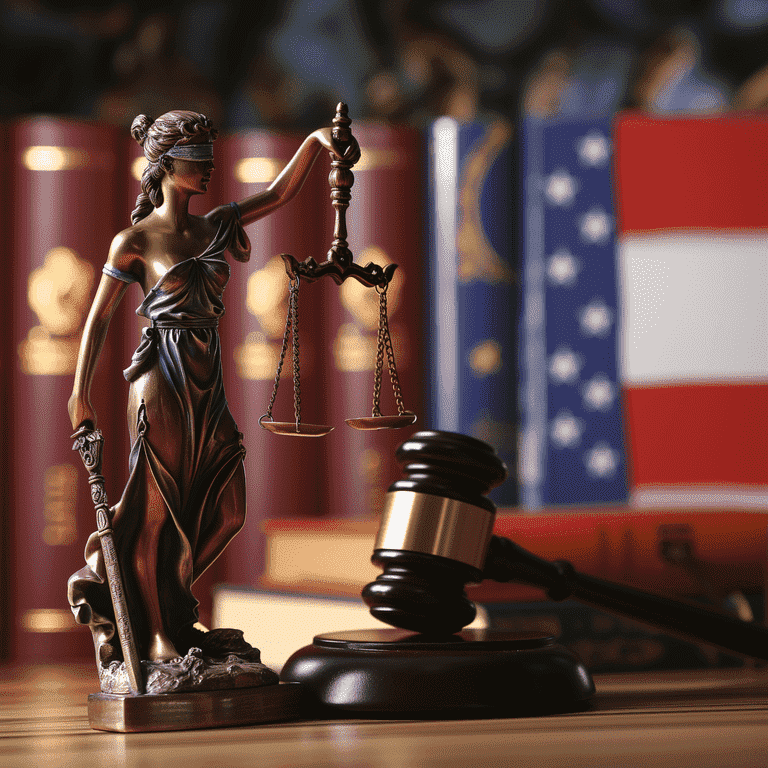
The Trial Process in Nevada
Understanding the Trial Procedure
A trial is where the facts of your case are examined, and a verdict is determined. In Nevada, the trial process follows specific stages, each crucial in pursuing justice.
Jury Selection and Trial Phases
- Jury Selection: A group of impartial jurors is selected. This process involves questioning potential jurors to ensure they can judge the case fairly.
- Trial Phases: The trial has distinct phases, including opening statements, witness testimony, cross-examination, and closing arguments.
The Burden of Proof
- Prosecution’s Responsibility: The burden of proof lies with the prosecution in criminal trials. They must prove ‘beyond a reasonable doubt’ that you committed the crime.
- Defense’s Role: Your defense attorney will challenge the prosecution’s evidence, presenting your side and aiming to create reasonable doubt.
Your Rights During Trial
Understanding your rights during the trial is fundamental to a fair legal process.
The Right to Confront Witnesses
- Cross-examination: You have the right to have your attorney cross-examine the prosecution’s witnesses, challenging their testimony and credibility.
The Right to Present a Defense
- Your Witnesses and Evidence: You can present your witnesses and evidence. Your attorney will help organize and present these effectively.
Post-Trial: Conviction and Sentencing
If Convicted: Understanding Sentencing
The sentencing phase follows a conviction, where the consequences of the guilty verdict are determined.
Types of Sentences in Nevada
- Variety of Sentences: Depending on the crime, sentences can include fines, community service, probation, or imprisonment.
- Factors Influencing Sentencing: The judge considers the nature of the crime, your criminal history, and any mitigating circumstances.
Rights After Conviction
- Appeal Process: You have the right to appeal the conviction and sentencing if there are grounds to believe errors occurred during the trial.
- Post-Conviction Rights: Even after a conviction, certain rights remain, such as humane treatment and access to legal resources.
Tips for Reacting to an Arrest in Nevada
Immediate Actions to Take
Your initial actions following an arrest can significantly impact the outcome of your case.
Staying Calm and Cooperative
- Remain Composed: Panicking or becoming aggressive can worsen the situation.
- Follow Instructions: Cooperate with law enforcement officers, but remember your rights.
Contacting a Lawyer
- Seek Legal Counsel: As soon as possible, contact a lawyer to discuss your case and next steps.
Long-Term Considerations
Navigating an arrest and its aftermath involves long-term strategies as well.
Preparing for Court Appearances
- Stay Informed: Understand when and where your court appearances will be and the nature of each.
- Work with Your Attorney: Regularly discuss your case with your attorney to stay prepared.
Managing Life During Legal Proceedings
- Personal and Professional Life: Balance your court obligations with your personal and professional responsibilities.
- Support System: Lean on friends, family, or support groups for emotional and practical help.
Resources and Support Systems
Legal Resources in Nevada
Knowing where to find legal resources is crucial for navigating the legal process effectively.
Public Defender’s Office
- Representation for Those Who Can’t Afford an Attorney: If you cannot afford private legal representation, the Public Defender’s Office can provide assistance.
- Eligibility and Application: You must apply and demonstrate financial need to receive this support.
Legal Aid Organizations
- Free or Low-Cost Legal Services: Various organizations offer legal advice and representation at reduced costs or for free, depending on your financial situation.
- Range of Services: These organizations can assist with everything from legal advice to representation in court.
Support Systems for the Accused and Their Families
Facing criminal charges can be emotionally and mentally taxing for you and your loved ones.
Counseling and Support Groups
- Emotional Support: Professional counseling and support groups can help you and your family cope with the stress and uncertainty of legal proceedings.
- Sharing Experiences: Interacting with others in similar situations can provide comfort and practical advice.
Financial Aid Options for Legal Defense
- Funding Legal Defense: There are avenues for financial assistance if legal defense costs are burdensome.
- Exploring Options: Discuss potential financial support options with your attorney or legal aid organizations.
Why You Have Not Hired a Felony Defense Attorney Yet
Watch this short video to take the next big step toward defending your rights against a felony charge.

Breaking It All Down for You
The importance of understanding the legal process in Nevada cannot be overstated. Each step requires awareness and proactive engagement. You need to know your rights during an arrest and prepare for trial. Seeking qualified legal help early on is crucial. Remember, the decisions you make and the actions you take will significantly influence your case’s outcome. Stay engaged, informed, and involved throughout your legal journey. This will help you achieve the best outcome.

Frequently Asked Questions
What are my rights if I’m arrested in Nevada?
If you’re arrested in Nevada, you have the right to remain silent, the right to an attorney, and the right to know the charges against you. You should exercise these rights calmly and politely. Do not resist arrest or provide any information beyond your basic identification details until you have legal representation.
How can I find a qualified criminal defense attorney in Nevada?
You can find a qualified attorney through referrals from friends or family, online directories, or by contacting the Nevada State Bar Association. Look for attorneys with experience in criminal defense and a track record of success in cases similar to yours. Many attorneys offer free initial consultations, which can help you assess their suitability for your case.
What’s the difference between a misdemeanor and a felony in Nevada?
Misdemeanors are less serious crimes, typically punishable by fines and up to a year in jail. Examples include petty theft and simple assault. Felonies are more serious offenses, punishable by prison sentences of more than a year. Examples include murder, rape, and grand theft. The distinction impacts the severity of the potential consequences and the way your case is handled in the legal system.
What should I expect at my first court appearance in Nevada?
At your first court appearance, known as an arraignment, you’ll be informed of the charges against you and asked to enter a plea (guilty, not guilty, or no contest). The judge will also decide on bail and any conditions of release. It’s crucial to have an attorney present to advise you and protect your rights during this process.
What is bail, and how is it determined in Nevada?
Bail is an amount of money or property pledged to the court to secure your release from custody pending trial. It serves as a guarantee that you’ll appear for future court dates. The amount of bail is set by the judge, based on factors like the severity of the alleged crime, your criminal history, and your ties to the community. Your attorney can argue for lower bail or alternative release conditions.
What is a plea bargain, and should I accept one?
A plea bargain is an agreement between the defense and the prosecution where you plead guilty to a lesser charge or receive a reduced sentence in exchange for avoiding trial. Whether to accept a plea bargain is a complex decision that depends on the specifics of your case. Your attorney can advise you on the pros and cons and help negotiate the best possible deal, but ultimately, the decision is yours.
What happens if I’m convicted of a crime in Nevada?
If you’re convicted, the next stage is sentencing, where the judge determines your punishment. This can include fines, probation, community service, and/or incarceration. The severity of the sentence depends on factors like the nature of the crime, your criminal history, and any mitigating or aggravating circumstances. Your attorney can present arguments for leniency and ensure your rights are protected throughout the process.
Can I appeal my conviction or sentence in Nevada?
Yes, you have the right to appeal your conviction or sentence if you believe legal errors were made in your case. An appeal asks a higher court to review the decision of the lower court. There are strict deadlines and procedures for filing an appeal, so it’s important to act quickly and work closely with your attorney.
What resources are available for defendants and their families in Nevada?
Nevada offers a range of resources for defendants and their families, including public defenders for those who can’t afford an attorney, legal aid clinics that provide free or low-cost legal advice, and community organizations that offer support, counseling, and advocacy services. Your attorney or local bar association can provide referrals to these resources.
How can I cope with the stress and uncertainty of facing criminal charges?
Facing criminal charges is undeniably stressful, but there are strategies to help you cope. Stay in close communication with your attorney, so you understand the process and know what to expect. Seek support from trusted friends, family members, or a mental health professional. Focus on taking care of your health through proper diet, exercise, and sleep. Remember, an arrest or charges are not a conviction – you have rights, and there is always hope.

Glossary
Arraignment
The first court appearance after an arrest is when the accused is formally charged and asked to enter a plea (guilty, not guilty, or no contest).
Bail
The accused can pay a set amount of money as a guarantee to appear in court later. If the accused appears as required, the bail is refunded.
Bench Warrant
An order issued by a judge to arrest an individual who failed to appear in court as required.
Burden of Proof
A legal case’s obligation is to prove the allegations are true. In criminal cases, the prosecution carries the burden of proving the defendant’s guilt beyond a reasonable doubt.
Cross-Examination
Questioning a witness in a trial by the party opposing the one who called the witness is intended to discredit or challenge the testimony.
Defense Attorney
A lawyer who represents the accused in legal proceedings, protecting their rights and arguing on their behalf.
Diversion Program
This is an alternative to traditional court trials. It’s offered to certain offenders. If they complete specific conditions, the charges may be dismissed.
Due Process
The legal requirement is that the state must respect all legal rights owed to a person, including fair and proper legal procedures.
Felony
A serious criminal offense is usually punishable by imprisonment for more than one year or death.
Jury Selection
Choosing jurors who will serve on a jury during a trial ensures they can judge the case impartially.
Miranda Rights
The constitutional rights of accused persons taken into custody. These include the right to remain silent and the right to an attorney.
Misdemeanor
A less severe crime is punishable by fines or imprisonment for less than one year.
No Contest Plea
A plea where the defendant accepts conviction but doesn’t admit guilt.
Plea Bargain
An agreement between the defendant and prosecutor. The defendant agrees to plead guilty to a lesser charge. In exchange, they receive a more lenient sentence or the dropping of other charges.
Probable Cause
Reasonable grounds for making an arrest, conducting a search, or pressing a charge.
Public Defender
The government employs a lawyer to represent defendants who cannot afford to hire a private attorney.
Sentencing
The declaration by a judge of the punishment assigned to a defendant found guilty of a crime.
Subpoena
A legal document ordering a person to attend court as a witness or to produce documents.
Trial
A formal examination of evidence in court by a judge (and often a jury) to decide guilt in a case of criminal or civil proceedings.
Verdict
The decision on a criminal case reached by a jury or judge determines the guilt or innocence of the defendant.
Additional Resources for You

Our lead attorney, Molly Rosenblum Allen, Esq, has not only been a stalwart representative for her clients but has also created an array of resources to assist you during challenging times. These resources cover a wide range of legal topics and provide valuable insights into the intricacies of the legal system. Here are some of the resources available:
Double Jeopardy: Understand the protections and limitations of being tried for the same crime twice.
Hung Jury: Discover what happens when a jury cannot agree on a verdict and how it affects your case.
Circumstantial Evidence: Gain insight into how indirect evidence can impact the outcome of your case.
Indicted vs Charged: Understand the differences between being indicted and being charged, and how each can affect your rights and legal strategy.
Difference Between Jail and Prison: Learn about the distinctions between jail and prison in terms of conditions, duration of stay, and the nature of offenses.
What are Miranda Rights: Know your rights when being questioned by police to ensure your protections are upheld.
How to Check if You Have an Outstanding Warrant: Find out the steps to check for any outstanding warrants against you to avoid unexpected legal complications.
What to Look for in a Criminal Defense Lawyer: Get insights into choosing the right criminal defense lawyer who can best represent your interests.
Possible Ways to Reduce a Felony Charge: Explore strategies that might be employed to reduce the severity of a felony charge.
Should You Accept a Plea Bargain: Understand the implications of accepting a plea bargain and how it can affect the outcome of your case.
Molly Rosenblum Allen, Esq is committed to providing accessible, comprehensive legal information to help you navigate your legal challenges confidently. Each of these resources is designed to offer clarity and guidance on key legal concepts and procedures.

Offsite Resources You May Find Helpful
Here are offsite resources that are related to the content and may be useful for readers seeking additional information:
American Civil Liberties Union (ACLU): A great resource for understanding civil rights and liberties, especially in the context of the criminal justice system. Visit ACLU
National Association of Criminal Defense Lawyers (NACDL): Provides resources and advocacy for criminal defense attorneys and those interested in the criminal justice system. Visit NACDL
FindLaw: A comprehensive resource for legal information, including guides on criminal law and the legal process. Visit FindLaw
Justia: Offers a wide range of legal resources, including case law, statutes, and legal articles on criminal defense and rights. Visit Justia
National Legal Aid & Defender Association (NLADA): A resource for legal aid and public defense, crucial for those who cannot afford private legal representation. Visit NLADA
The Innocence Project: Provides information on wrongful convictions and the criminal justice system, focusing on the use of DNA evidence. Visit The Innocence Project
United States Courts: The official website of the federal judiciary, offering educational resources on how the court system works, including criminal cases. Visit United States Courts
These resources offer a wealth of information that can be incredibly useful for anyone looking to understand more about the legal system, criminal defense, and their rights within these contexts.

A Special Message From Our Lead Attorney
Why You Might Need a Lawyer

Molly Rosenblum, Esq
Dear Reader,
Thank you for taking the time to explore our resources. I hope you found them informative. I hope you found them helpful in understanding the complexities of the legal system. At The Rosenblum Allen Law Firm, we are committed to providing you with the knowledge and support you need during challenging times.
Please reach out if you have more questions. Also, feel free to ask for personalized legal advice. We offer a free consultation to discuss your circumstances. We will determine the best way forward. You can schedule this consultation by calling us at (702) 433-2889. Our team is here to assist you with expertise, compassion, and dedication.
I am looking forward to the opportunity to support and guide you through your legal journey.
Warm regards,
Molly Rosenblum, Esq.

